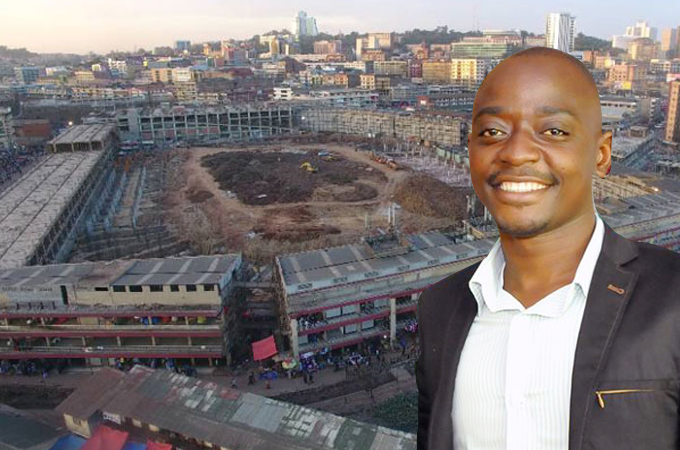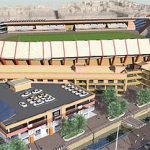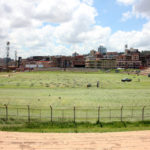Just a few days after government said it intended to amend Nakivubo War Memorial Stadium Trust Act, 1953 to improve governance of the facility, it has emerged that two Ugandan citizens, George Nyanzi and Joseph Asiimwe days ago sued Ham Enterprises alongside four others for allegedly conniving to mortgage the famous stadium at US$7 million (about Shs25.9 billion). The mortgage arrangement is said to have taken place on March 4, 2019.
Through their lawyers of Muwema & Co Advocates, the plaintiffs aver that Ham Enterprises, the trustees of the stadium, ABSA Bank Uganda (formally Barclays Bank Uganda), Kampala District Land Board and the Commissioner Land Registration jointly and severally created a lease and subsequent mortgage of the stadium “for unauthorized gain knowing it was illegal to do so.”
The plaintiffs through their lawyers argue that leasing the stadium to Ham Enterprises and the company using the same to acquire US$7 million mortgage from ABSA Bank Uganda is an abuse of public authority and in contravention of the law. Ham Enterprises is owned by Kampala businessman Hamis Kiggundu.
The plaintiff want court to cancel any purported rights or interests created over the stadium, saying it is illegal. Specifically the plaintiffs say the transaction contravenes the Nakivubo War Memorial Act.Cap.47 and Article 26 of the Constitution of Uganda.
The plaintiffs through the lawyers want court to order the Commissioner Land Registration to cancel the lease awarded to Ham Enterprises and revert it into the names of Trustees of Nakivubo War Memorial Stadium Trust. The plaintiffs argue that Ham Enterprises currently runs the Stadium as a private property, have been given a lease in disregard of the laws.
The plaintiffs accuse Uganda Trustees of Nakivubo War Memorial Stadium Trust, Kampala District Land Board and the Commissioner for Land Registration of conniving and transferring the stadium’s lease from the names of Uganda Trustees of Nakivubo War Memorial Stadium Trust to Ham Enterprises so as to enable him mortgage to ABSA Bank Uganda at US$7 million. They want the mortgage cancelled as well.
The plaintiffs say they have all evidence to prove their case against the defendants.
On Monday the government of Uganda said it plans to amend the Nakivubo War Memorial Stadium Trust Act, 1953 in a bid to allow its redevelopment to required standards.
The main objectives of amending the Nakivubo War Memorial Stadium Trust Act as stated by Cabinet, 1953 include; strengthen the legal framework for re-development and upgrading the Stadium to meet the required modern and Global Standards, prohibit the Board from selling, leasing, disposing of or otherwise dealing in the scheduled (Trust) property or any part thereof (of it) as stated in the current Act and provide for robust and proactive stadium management by providing for and guaranteeing good Corporate Governance Principles.
The stadium that was initially established in 1926 was improved and modernised in 1954 by the British colonial government to commemorate the lives of Ugandans killed during the Second World War following the passage of the “Nakivubo War Memorial Act” by the Parliament of Uganda.
In early 2013, the stadium was closed by the Uganda Revenue Authority for a period of about one month, over “accumulated debts.” It was re-opened after payment arrangements had been agreed upon.
The stadium was also shut down in May 2011, but re-opened after only a week after payment plans were negotiated.
The stadium was reopened and hosted the third round, second leg of the CAF U-17 Championship, a game between Uganda and Zambia, on 27 September 2014.
In 2017, major renovations began at the stadium, involving improvement to the grounds, increasing seating from 30,000 to 35,000 and the construction of retail shops inside the outside walls of the facility.
The renovations are a joint venture between the government of Uganda and Ham Enterprises, a local enterprise, headed by Ham Kiggundu.
ROKO Construction are carrying out the work, began in June 2017 and was expected to conclude in 2019, at an estimated cost of US$49 million. Football clubs-SC Villa and Police SC moved their games as a result of the renovation.








